|
By Donald H. Harrison
TIJUANA, Mexico—A dozen years ago when Jan Galicot was completing college, his
family was getting out of the business he had been raised to believe he would
some day manage: a chain of small department stores under various names in Tijuana.
The family decided to sell the businesses because the peso was being devalued
against the dollar.
A graduate of San
Diego State University’s business program, Galicot saw the rampant
inflation all around him and wondered what kind of business could be successful
in such an economy.
Although tourists visiting Tijuana might provide a market for “coats,
jewelry , cosmetics, perfume, and records” that had been the staples of the
old family business, such items would be too high-priced for many Mexican
citizens in a troubled economy. As
Galicot had studied the theories and mechanics of running a chain store
operation, he didn’t want to limit his enterprises to the tourist market.
On
the other hand, if he focused only on products that Mexicans could afford—such
as groceries, for example—he might not be able to attract tourist customers.
So, he needed to find something that would appeal to both types of
customer, something that could withstand fluctuations in the economy and attract
Mexican customers, while at the same time being something tourists might want to
bring home with them.
Pharmaceuticals!
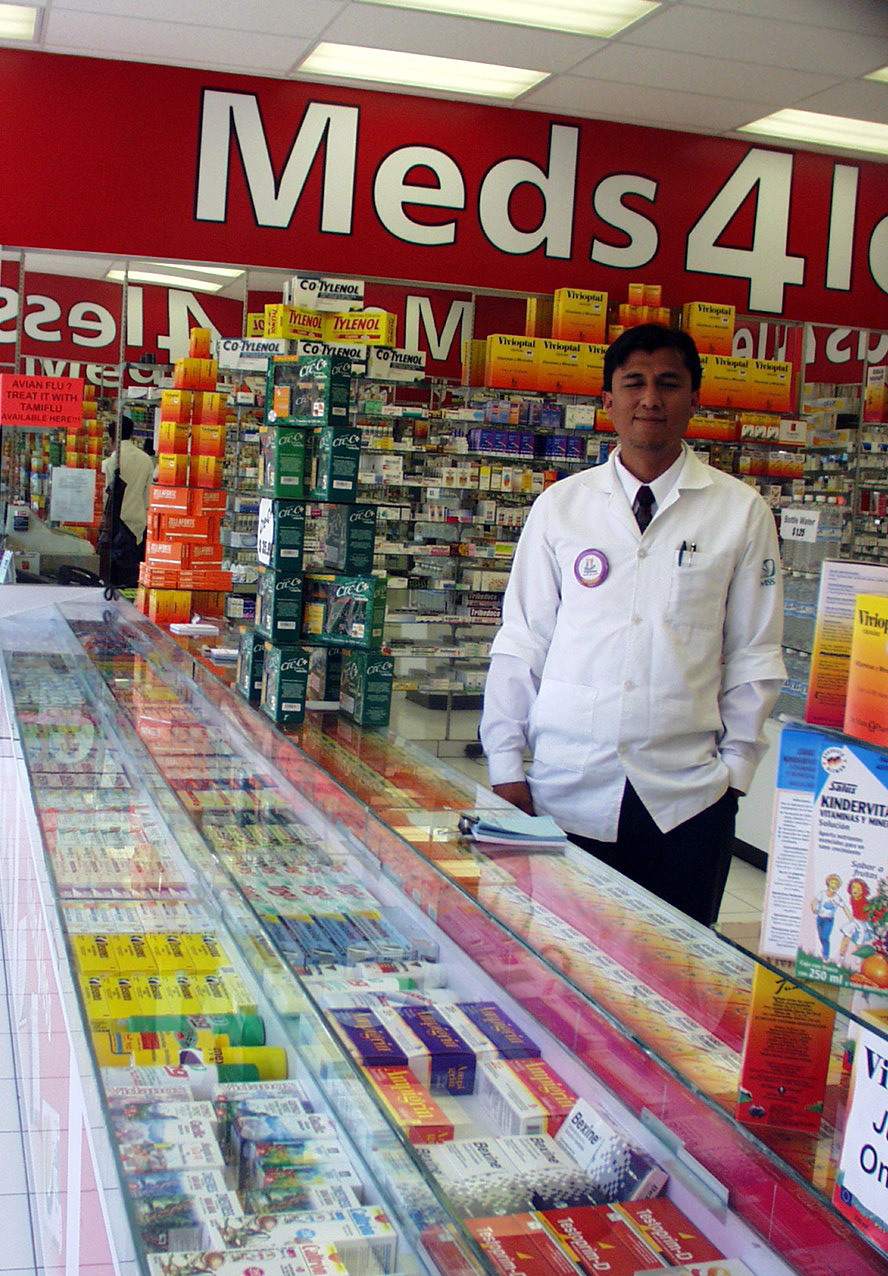 Galicot
realized that he could sell pharmaceuticals—the packaged medicines without
narcotics or controlled substances that are sold either over-the-counter or with
a doctor’s prescription in both Mexico and the United States. Brand-name medicines. Galicot
realized that he could sell pharmaceuticals—the packaged medicines without
narcotics or controlled substances that are sold either over-the-counter or with
a doctor’s prescription in both Mexico and the United States. Brand-name medicines.
He hired a pharmacist to teach him the ins-and-outs of the business, and when he
felt he understood enough to make an entrepreneurial go of it, he hired a staff
of pharmacists for his first store, which he named Discount Pharmacy.
That first year, as he gained confidence in his discount formula, he
purchased two other stores in the tourist quarter near the U.S. border,
retaining their names.
Recently, Galicot took me on a tour of his operations.
As we walked down Avenida de la Revolucion, I remarked that one of the
first stories I had written as an editor of the now defunct San Diego Jewish
Press-Heritage about our fellow Jews of Tijuana was about the late
Pharmacist greets customers at one
of chain of stores owned by Jan Galicot
Jack and Shirley Swed, who were considered the business pioneers in the region.
He pointed to Rachel’s Leather Shop. “There
is the granddaughter of Jack and Shirley,” he said.
“She is also a Shirley.”
I
introduced myself to Shirley Sasson-Swed and told her of my great admiration for
her grandparents, and how much I enjoyed again hearing their stories in the
Isaac Artenstein documentary, Tijuana Jews.
After
further chit-chat, I looked
across the avenue at an array of pharmacies, and asked her: “Could you point
me back to Jan’s store?”
“Which
one?” she laughed. “He owns
them all.”
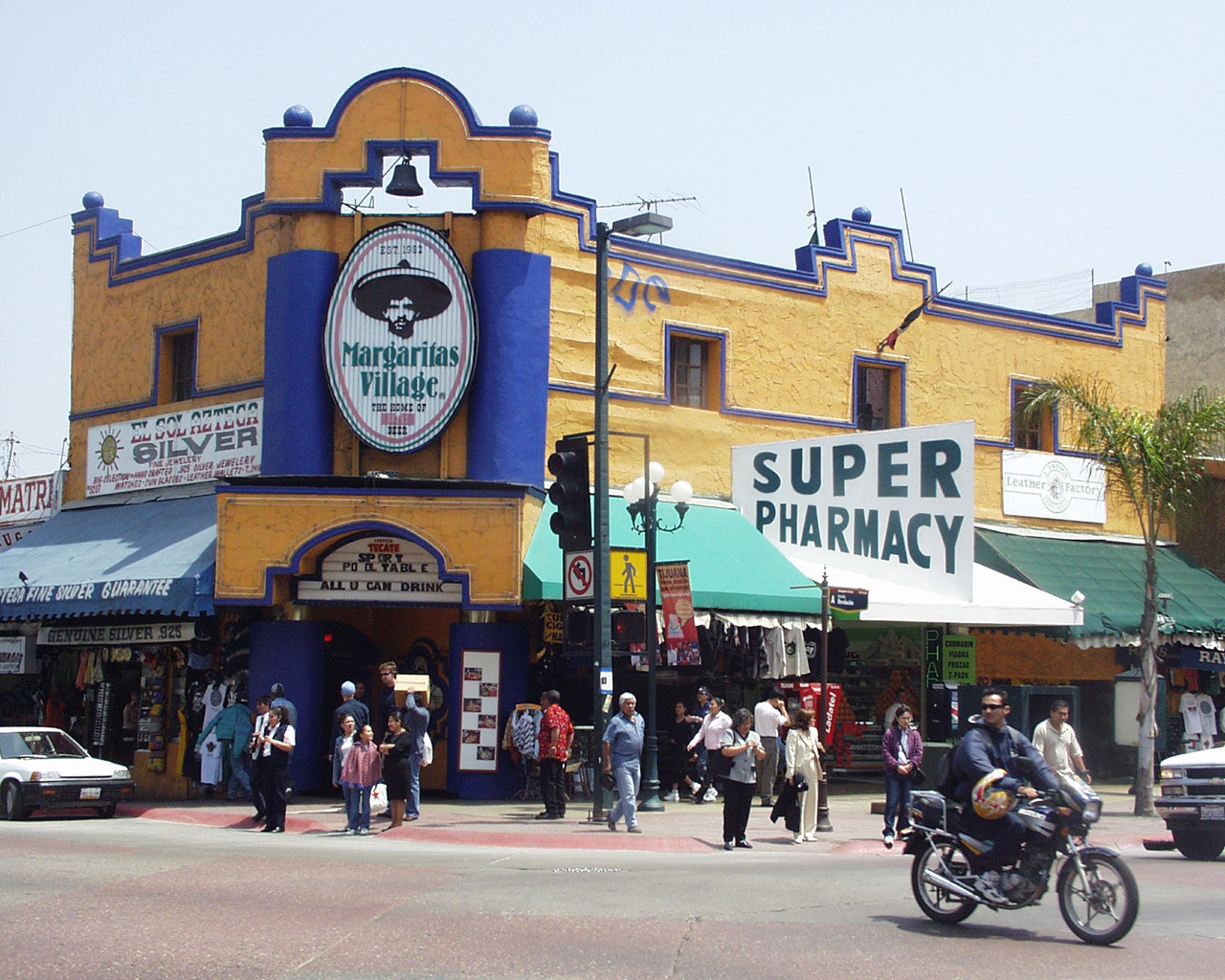 She
was exaggerating, but not that much. Galicot
owns 25 pharmacies trading under such names as “Discount Pharmacy,” “Drugs
for Less,” “Drug Depot,” “Medicine Company,” “Super Pharmacy,” and
“Pharmacia La Mas Barata.”(The Most Inexpensive Pharmacy). Ten of the
pharmacies are concentrated in the tourist district, 15 are located in other
areas of the sprawling city. She
was exaggerating, but not that much. Galicot
owns 25 pharmacies trading under such names as “Discount Pharmacy,” “Drugs
for Less,” “Drug Depot,” “Medicine Company,” “Super Pharmacy,” and
“Pharmacia La Mas Barata.”(The Most Inexpensive Pharmacy). Ten of the
pharmacies are concentrated in the tourist district, 15 are located in other
areas of the sprawling city.
Intrigued,
I had as many questions for Galicot as his stores seemed to have different kinds
of medicine— 10,000 different products per store being typical of his
operation.
I
noticed that every one of his stores had a display card for Tamiflu, an
antiviral drug that has been on the market since 1999 to combat a variety of
flus. Most recently, it has been
recommended as a protection against bird flu—if it should come to North
America.
Galicot explained that the medicine is in more plentiful supply in Mexico now
than in the United States, possibly because Americans, worried about the
possibility of avian flu, have been hoarding the medicine while the United
States government, in cooperation with the manufacturer, Roche, has been
building up a stockpile for distribution in the event of an epidemic.
The businessman said people should consult with their own doctors about using
Tamiflu. Assuming the doctors recommend it, then people who want to
protect themselves against the avian flu should take 10 daily pills of the
antiviral medicine—a treatment course that should ward off the disease for six
months. If, on the other hand, they
have come into contact with the avian flu, patients should take two pills for
five consecutive days.
Galicot
said that as a precautionary measure he brought home a supply of the medicine
for his own family, to be used only if there are reports that the bird flu is
spreading to humans. Whereas he
wants to be prepared, he said he does not believe there is reason for panic.
As in the cases of other medicines, he said, Tamiflu is sold at much lower
prices than in the United States.
The
price differential – is that why there are so many pharmacies in Tijuana?
I asked.
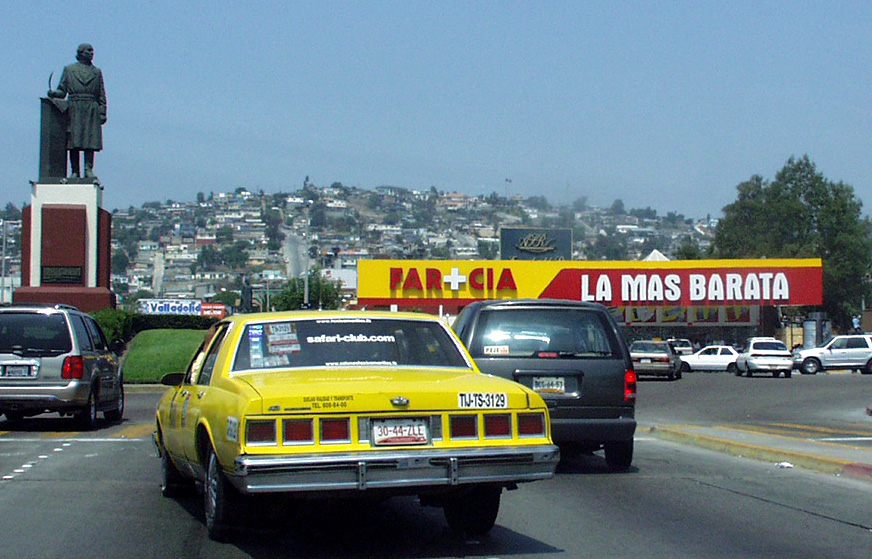 Galicot
answered that the maximum prices for medicines are controlled by Mexico’s
government which, as a matter of policy, attempts to guarantee that any Mexican
citizen can afford them. In order
to sell their products in Mexico, pharmaceutical companies must comply with the
maximum retail prices set by the government. Galicot
answered that the maximum prices for medicines are controlled by Mexico’s
government which, as a matter of policy, attempts to guarantee that any Mexican
citizen can afford them. In order
to sell their products in Mexico, pharmaceutical companies must comply with the
maximum retail prices set by the government.
Given the tremendous disparity in wages between a Mexican wage-earner and an
American, the prices are well below those charged in the United States.
Sometimes the same medicine can sell for one-half or even one-fourth the
price found in the United States.
What
about the safety of the drugs? I
had heard—and subsequently Jason Kim, president of the San Diego Pharmacists
Association also expressed this concern—that whereas
in the United States, the U.S. Food and Drug Administration (FDA) and
state authorities are able to protect consumers, that Americans who buy
medicines in Mexico may be on their own.
Kim, proprietor of the Rancho Santa Fe Wellness Center,
cautioned that whereas some pharmaceuticals purchased in Mexico may be
perfectly fine, others may not be.
U.S. Customs and Border Protection posts this warning on its official website:
“Buying medicine from outside the U.S. is risky business. Think it’s safe
buying medicine from outside the United States?
Think again. If you buy
foreign medicine from an interent site, from a storefront business that offers
to order medicine for you, or during visits outside of the United States, you
are taking a risk. This medicine
may be fake, have the wrong ingredient, or have no medicine at all—and could
be dangerous to your health. Don’t
risk Your Health.”
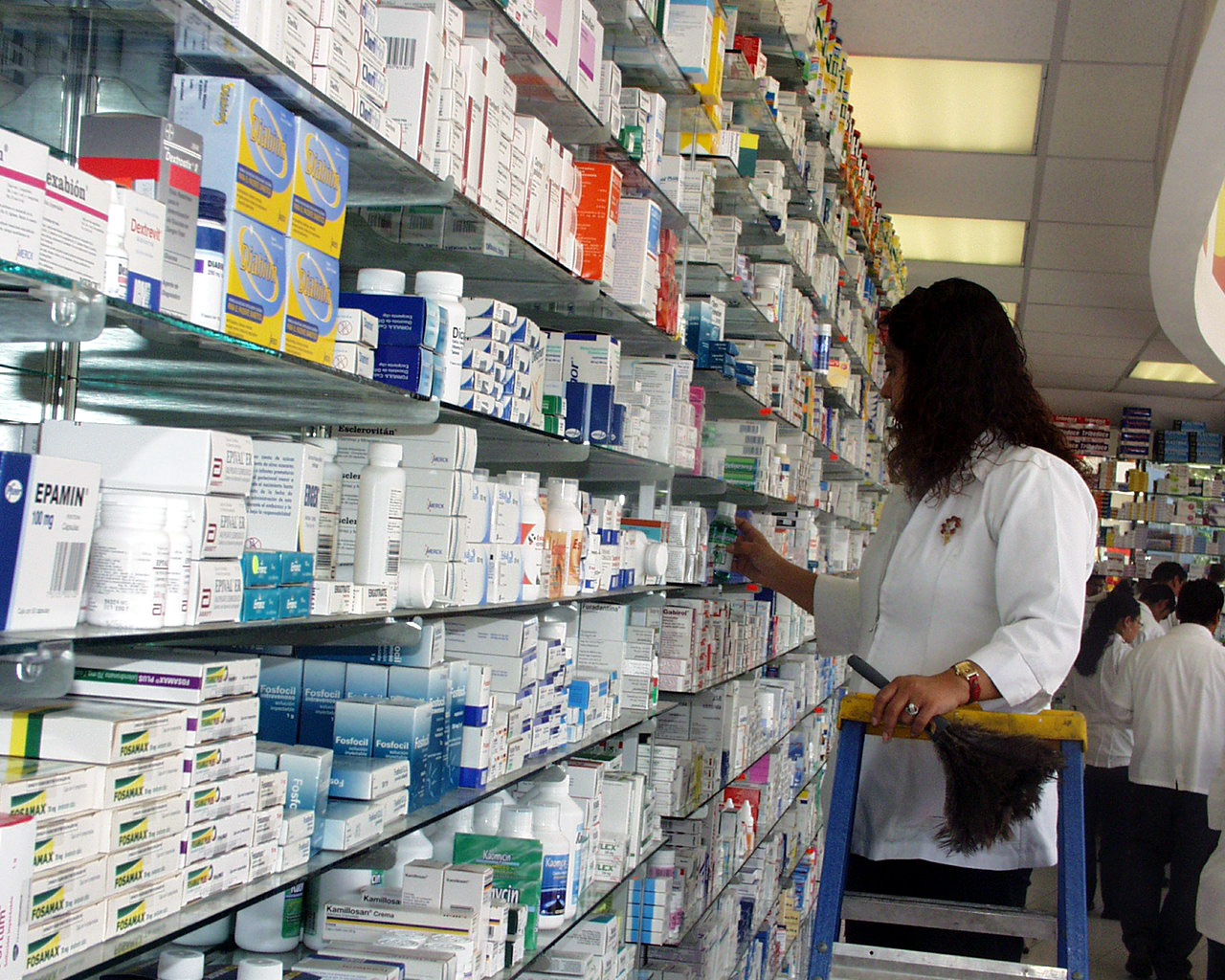 Nevertheless,
it is legal to bring medicines for personal use across the border,
according to Vincent Bond, the spokesman for U.S.Customs and Border Protection.
But there are rules to remember. First,
all medicines you bring back to the United States must be declared on your
Customs form, without exception. Second, if you would need a prescription in the
United States to buy any of those medicines, you must have the prescription
available for the Customs officials to see. Third, medicines must be unopened in
their original packages, easy to recognize by their names. Fourth, the maximum
amount of medications you may purchase is a three-month supply, and, in some
cases less. Bond said such
variables as how often you visit Mexico and how far you live from the border may
enter into the decision of the CBP agent you deal with. Nevertheless,
it is legal to bring medicines for personal use across the border,
according to Vincent Bond, the spokesman for U.S.Customs and Border Protection.
But there are rules to remember. First,
all medicines you bring back to the United States must be declared on your
Customs form, without exception. Second, if you would need a prescription in the
United States to buy any of those medicines, you must have the prescription
available for the Customs officials to see. Third, medicines must be unopened in
their original packages, easy to recognize by their names. Fourth, the maximum
amount of medications you may purchase is a three-month supply, and, in some
cases less. Bond said such
variables as how often you visit Mexico and how far you live from the border may
enter into the decision of the CBP agent you deal with.
Galicot does not sell any medicines with controlled substances, but if you were
to buy them elsewhere, a simple prescription would not be sufficient. Such
medicines must be prescribed by Drug Enforcement Agency-approved pharmacists,
whose DEA numbers are right on the prescription form.
Finally,
Americans crossing back into the country may bring up to $800 worth of goods
without paying duty every 30 days. The
cost of your medicines are counted within that $800 exemption.
Galicot
said that in his stores, the
medicines are all in their original seals, as delivered by the same
manufacturers whose products are sold in the United States – Eli Lilly, Roche,
Pfizer, AstraZeneca, Glaxo,
Beyer and so forth. He said
pharmaceutical companies are multinational companies that have their
headquarters and manufacturing plants in a variety of countries. He said the
medicines sold in Mexico by these companies are the same medicines that they
sell in other countries—whether they be England, Germany, France, Switzerland,
South Africa, Canada, or the United States.
Furthermore,
he responded, two Mexican government agencies—the Department of Health and the
Department of Commerce—regulate the sale of medicines in his country.
The Health Department, concerned for the health and welfare of Mexico’s
citizens, is concerned about the same issues as the FDA, while the Commerce
Department sets maximum prices for products and makes certain that the
pharmacies observe them. Consumers will find the maximum price stamped right
onto the package of the product, he said. If
for any reason, a dispute arose over a medicine, consumers could have recourse
to the Mexican legal system, just as U.S. consumers have recourse to the
American legal system.
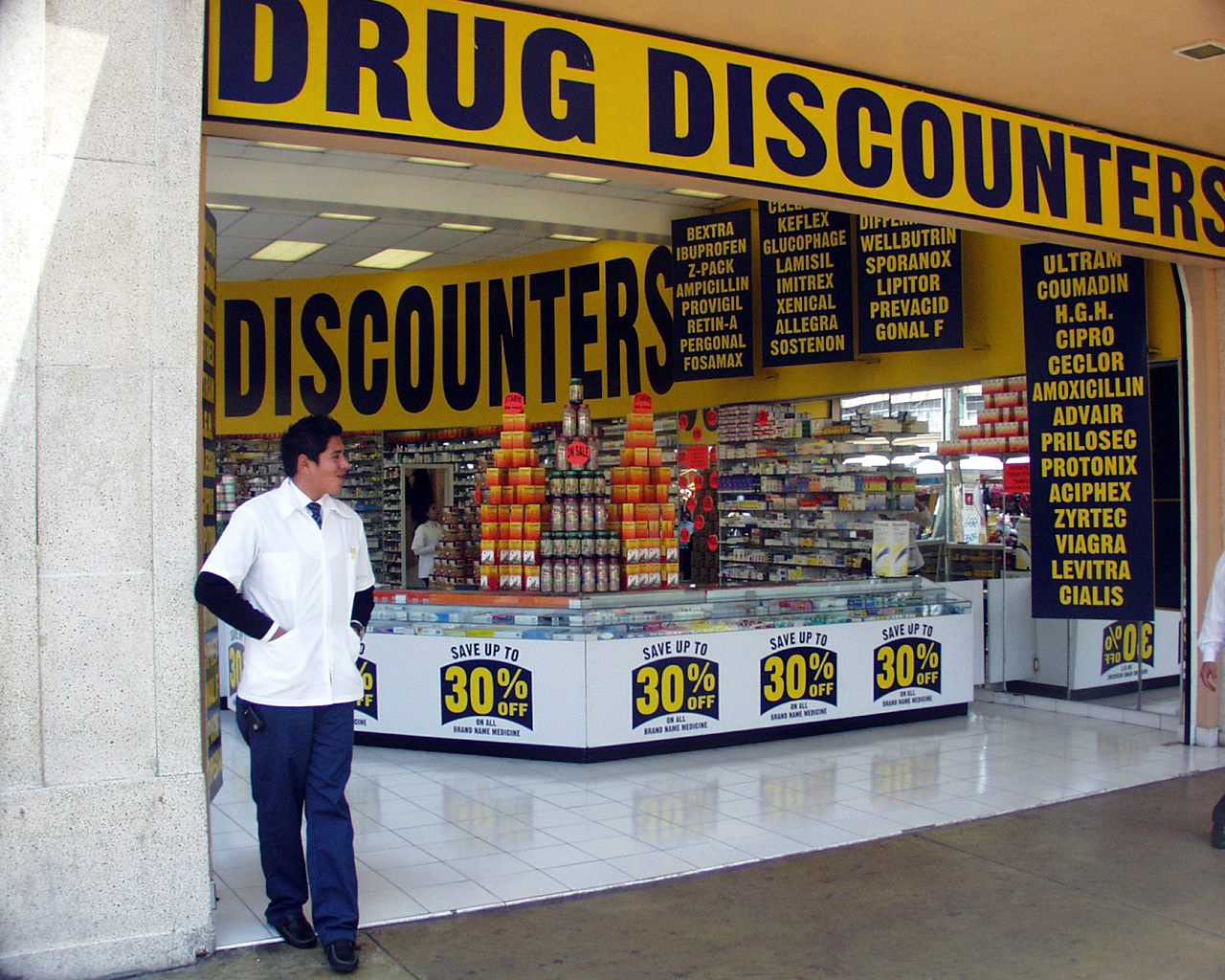 Making
a pitch for his own stores, Galicot said his policy is quite simple.
He discounts the government-set maximum price by 30 percent, a deeper
discount than his competitors offer. The
reason he can do so, he added, is because of the tremendous volumes of medicines
he purchases to keep his 25 stores well-stocked.
He has a central warehouse serving all his stores. Making
a pitch for his own stores, Galicot said his policy is quite simple.
He discounts the government-set maximum price by 30 percent, a deeper
discount than his competitors offer. The
reason he can do so, he added, is because of the tremendous volumes of medicines
he purchases to keep his 25 stores well-stocked.
He has a central warehouse serving all his stores.
If a customer needs something, and a store is temporarily out of stock, a clerk
will place a telephone call to a dispatcher, and the medicine will be brought to
the store normally within a few hours.
That’s another advantage he has over his competitors, he said.
The customers don’t have to wait for their medicines. Is it less
expensive to shop at his stores away from the tourist zone?
No, replied Galicot, the 30 percent discount is the same in all his stores.
Besides
walk-in customers, Galicot has some important contracts, including that of the
Tijuana Municipality. One large,
drive-in, Pharmacia La Mas Barata,
in fact, is across the traffic circle graced by a statue of Miguel Hidalgo from
Tijuana’s City Hall in the Rio District.
 There
is a look to Galicot’s stores. All
of them are sparkling clean, with white, sanitized, floors appropriately
conveying the impression that this is a business that takes health matters,
including hygiene, quite seriously. There
is a look to Galicot’s stores. All
of them are sparkling clean, with white, sanitized, floors appropriately
conveying the impression that this is a business that takes health matters,
including hygiene, quite seriously.
Medicines are arrayed in artistic displays, with some of the store employees
competing to find ways of stacking the packages in interesting and eye-appealing
ways. The tone is friendly, not like you are visiting an
institution, but rather a neighborhood
store that values your repeat business.
Unlike
other stores on the Avenida, employees in Galicot’s stores are not permitted
to watch television during working hours—their focus must remain on the
customer.
Bottom line: Jan Galicot brings to Tijuana some American business methods, mixed
with Mexican warmth.
|

